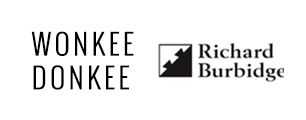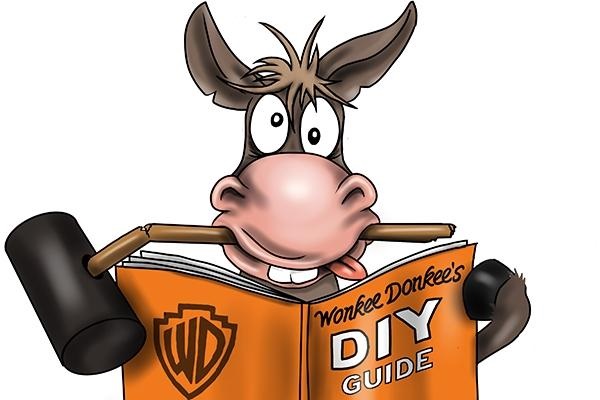How to choose the correct screwdriver bit for the screw?
How to choose the correct screwdriver bit for the screw?
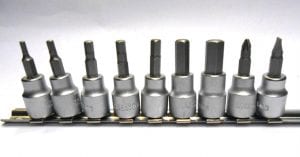
The screwdriver bit you need will depend on the size of the screw you want to insert or remove, as well as the shape of its drive.
One of the most important factors to consider when drilling is making sure you have a good quality drill.
At Wonkee Donkee we have made a list of the best drills available on the market today.
Step 1 – Look at the screw’s drive
There are various types of screw drive – the most common are listed below:
Slotted Screw
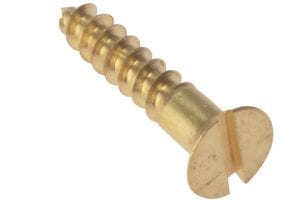
A slotted drive is characterised by a single straight recess across the screw’s head.
The images show an example of a countersunk screw with a slotted drive and a slotted drive screw from above.
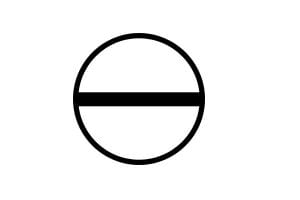
Which Screwdriver Bit is Best for Slotted Screws?
Slotted screws are designed to be driven by a screwdriver bit with a flat blade tip.
Ensure you select the correct size for your screw.
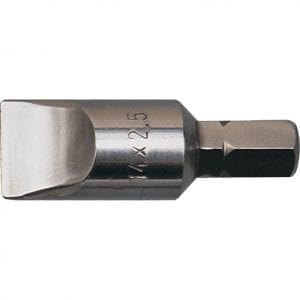
Phillips Screw
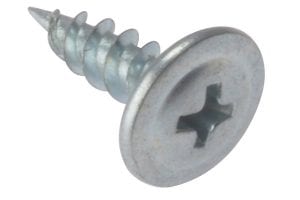
A Phillips drive is characterised by a cross-shaped recess with rounded edges at the cross-sections.
The images show an example of a countersunk screw with a Phillips drive and a Phillips drive screw viewed from above.
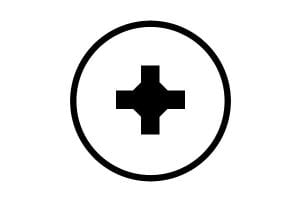
Which Screwdriver Bit is Best for Phillips Screws?
A screw with a Philips drive is designed to be driven with a Philips screwdriver bit.
Ensure you select the correct size bit for your screw.
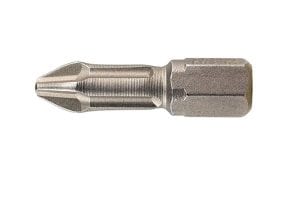
Pozidriv Screw
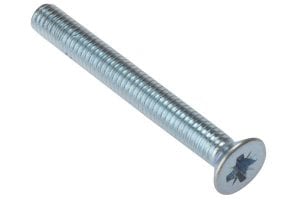
A pozidriv drive looks very similar to a Phillips screw and also has a cross-shaped recess in the centre.
However, it also has a second set of indentations, set at 45 degrees to the first set.
The images show an example of a screw with a pozidriv drive from the side and a pozidriv drive viewed from above.
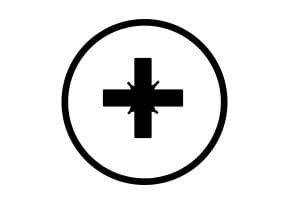
Which Screwdriver Bit is Best for Pozidriv Screws?
A screw with a pozidriv drive is designed to be driven by a pozidriv screwdriver bit.
Ensure you select the correct size bit for your screw.
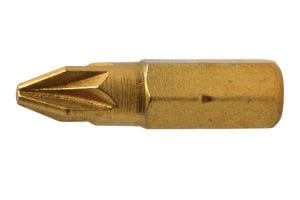
Torx Screw
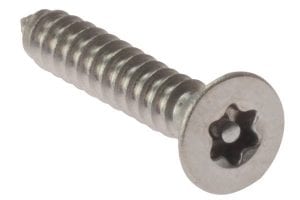
A torx (pronounced ‘torks’) drive is characterised by a star-shaped recess with 6 rounded points.
The images show an example of a countersunk screw with a torx drive and a torx drive as viewed from above.
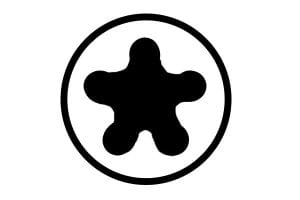
Which Screwdriver Bit is Best for Torx Screws?
A screw with a torx drive is designed to be driven with a torx screwdriver bit.
Ensure you select the correct size bit for your screw.
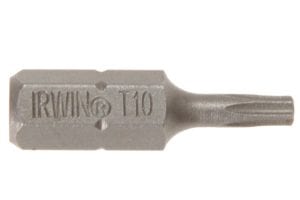
Square / Robertson Screw
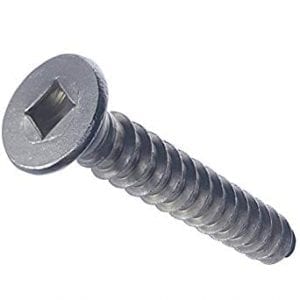
This is a square-shaped drive that tapers towards the screw’s shank.
The images show an example of a screw with a square drive and a square drive screw as viewed from above.
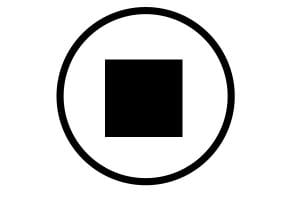
Which Screwdriver Bit is Best for Square / Robertson Screws?
A screw with a square drive is designed to be driven with a square screwdriver bit.
Ensure you select the correct size bit for your screw.
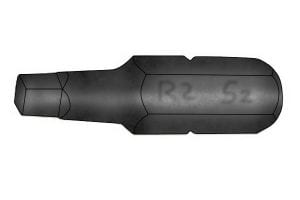
No drive design – just a hexagonal head
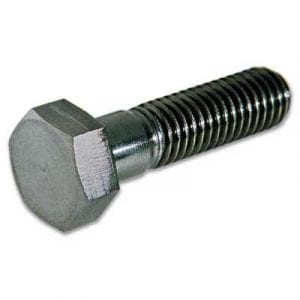
Some screws don’t have a slot in the top of their head, they just have a hexagonal-shaped head like a bolt.
Which Screwdriver Bit is Best a Hexagon Head Screws?
These types of screws need a hex driver bit to insert or remove them.
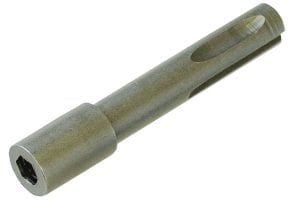
Step 2 – Find out the size of the screw
Now that you know what shape of screwdriver bit to use, you need to select the correct size.
This will ensure that the bit doesn’t slip off the screw head when inserting or removing it.
A screw’s size will usually be presented as a number.
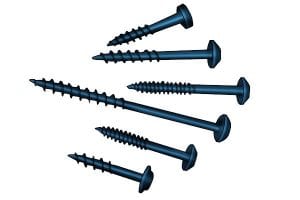
This number does not refer to a particular dimension on the screw, it refers to the size in the same way as a size 5 shoe or a size 10 dress. The higher the number, the larger the overall size of the screw.
The screw’s number can be found on the product packaging or you can find it out by measuring the shank of the screw and looking at the table below.
Partially and Fully Threaded Screws
To find out the number of a fully-threaded screw the measurement is taken across the body of the screw.
For partially-threaded screws it is taken across the smooth portion of the shank.
Once you have this measurement, look at the table below.
Step 3 – Look at the table below
Look along the table to find out the screw’s number and the size of screwdriver bit needed to insert or remove it.
For example, if you had a pozidriv screw with a shank diameter of 3.0 mm, you can see from the table that it’s a number 4 screw and needs a PZ1 screwdriver bit to insert or remove it.
